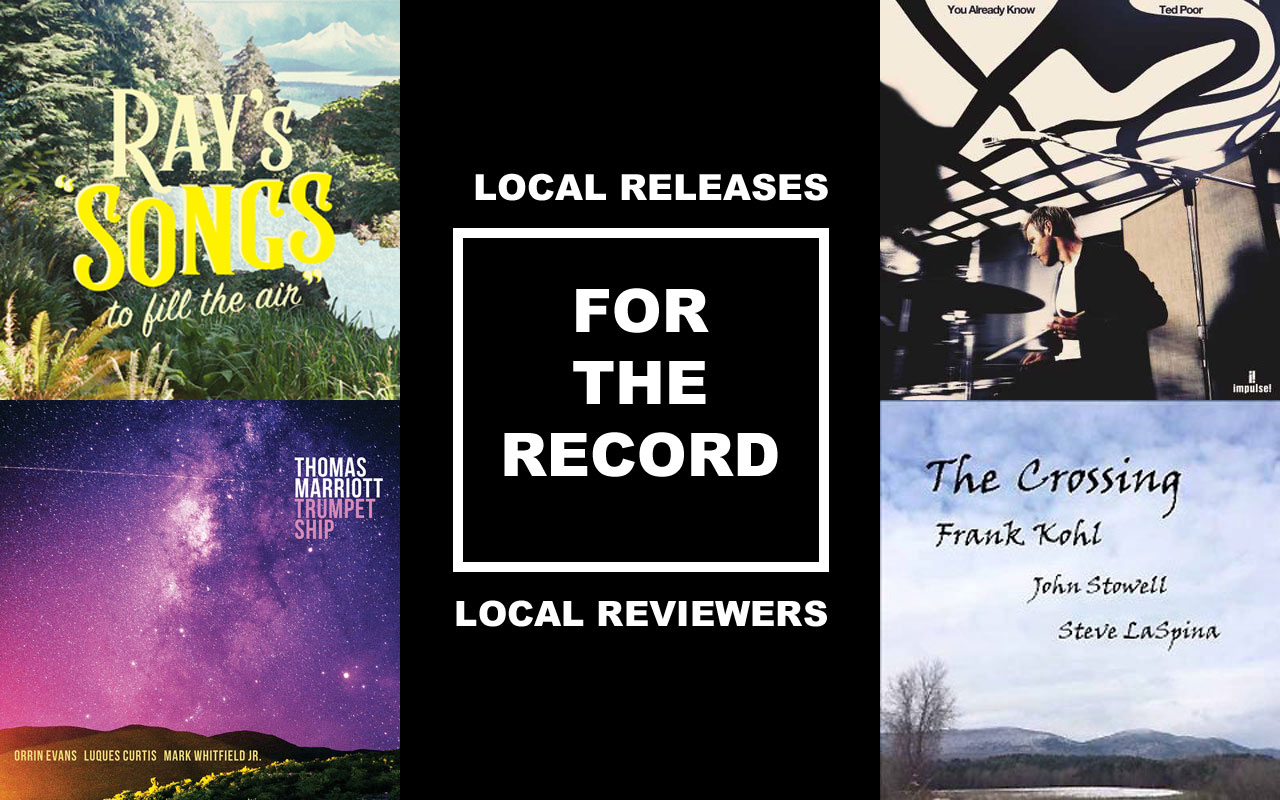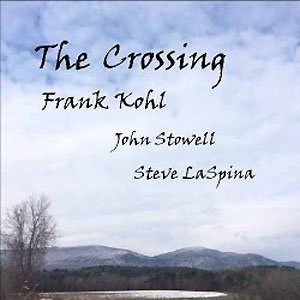

Frank Kohl
The Crossing
Self-Released
New York born and bred guitarist Frank Kohl has been a Seattle jazz fixture since the early 90s. On his fifth album, a combination of standards and originals, he is joined by John Stowell on guitar and nylon string guitar and longtime collaborator, composer, and bassist Steve LaSpina. Standing tall between effusive renderings of tracks from Jobim and Jerome Kern are original tunes that showcase Kohl’s agile pure tone, chromatic sense, and the whole trio’s chops as improvisers of rich lyrical licks.
The title track “The Crossing” and what follows are lushly illustrative. Accessible and relaxed, melodic droplets fall like serene rain as the trio gathers together a groove and graciously allow each other to unravel it in turn. One can sense the way each player expertly anticipates, opens, and supports as the next idea bubbles up and is worked out. Kohl’s playing on “O Grande Amour” is all candle glow, a bit too much wine, and the rest of the world falling out of focus just as the guitars gently part and LaSpina presses to the fore with some truly romantic bow work on the upright bass. A universally beloved and often revisited bossa nova, the trio treats it well.
“The Goodbye” seems to simmer over and over a blue memory as the guitars converse, asking and answering and returning to the question. Throughout the album, the sturdy rhythmic and percussive center laid down by LaSpina and the round warm outline created by Stowell on the nylon string guitar provide a field of play in which the tonal and harmonic mastery of Kohl is allowed to shine effortlessly. There are moments where the trio strides tightly in step, seamlessly rhythmic and without ever wanting for a percussionist. Even when showcasing their athleticism, the trio manages to be ever so warm, so harmonic and intimate in the sound they craft. Comforting in much of its familiarity, the work easily holds your attention with sophisticated surprises. From top to bottom, The Crossing delivers measured, moody, unassailable cool.
–Meredith Cooper